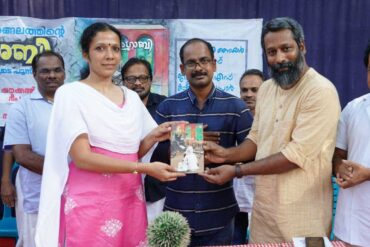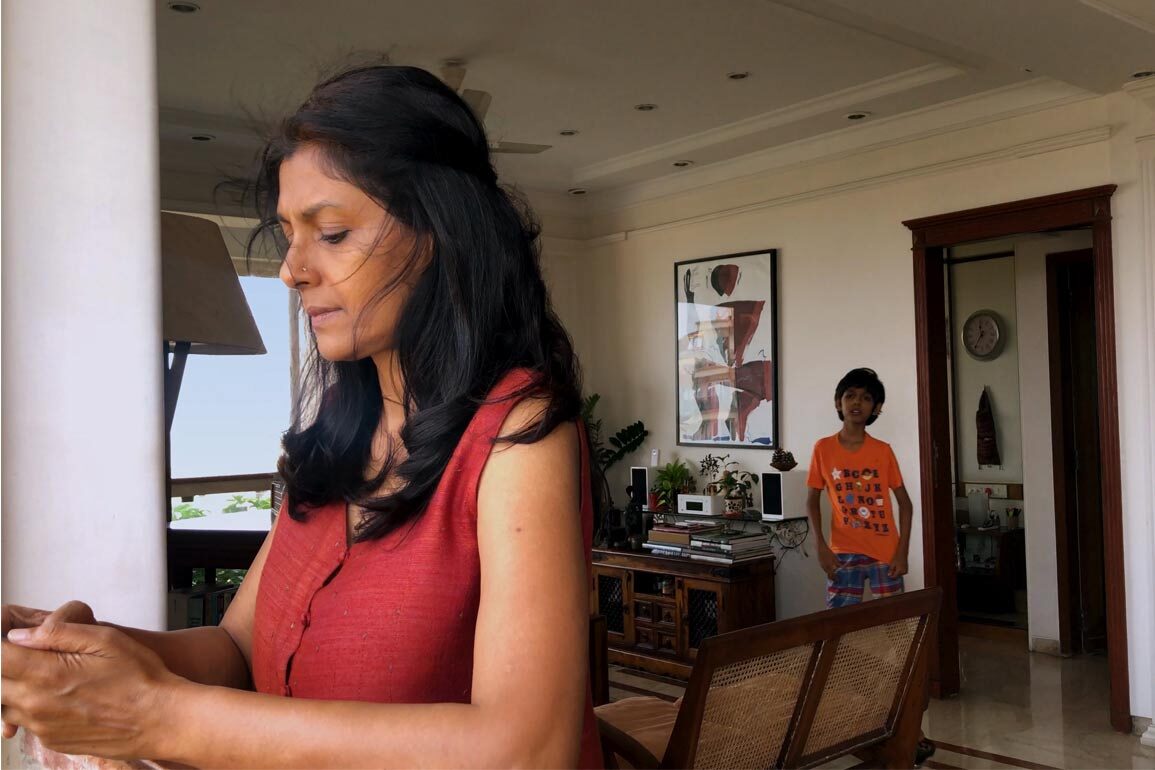In her seven-minute film, Listen To Her, actor Nandita Das sits in front of her laptop at the dining table of a Mumbai apartment. There are large, airy windows, elegant furniture, a painting on the wall, and a plant growing in a pot at the corner of the living room. As she is having a Zoom conversation with her office colleagues, her son, played by actual son Vihaan, says, “Mama, do you know an octopus has three hearts, and even if you cut off its head, it can still live for one more hour.”
Das replies with “God, that’s so cool!” Then she returns to her Zoom conversation. But just then a sound comes from the bedroom, where her husband is watching a film in loud volume on the laptop. So, she grimaces, takes earphones from a small box placed on a cabinet and gives it to him. He says, “Sorry, was it too loud?”
She says yes, and comes back. The pressure cooker goes off in the kitchen, so she goes to switch it off. Just then a call comes on her mobile. A woman calls and asks whether it is an NGO. Das says no, and cuts the call. The woman calls again for help and in the background, a man has come home. It seems the woman is in the washroom and he bangs on the door and tells her to come out. In her panic, she forgets to switch off the mobile phone. When she opens the door, the man slaps her, she cries out and there is a child wailing in the background.
As she listens to all this, Das has a look of anguish about her. She calls the police but they sound bored and indifferent. The story rolls on…
There are two threads: one is of overworked women and the second is about domestic violence which takes place in many households.
Asked about the trigger for the film, Das says she saw a news item which stated that the National Commission for Women had recorded more than a two-fold increase in the number of cases of gender-based violence during the lockdown. She realised it was ironic that the tag for the coronavirus pandemic is ‘Stay home, stay safe’. “I call this the ‘Shadow Pandemic’,” she says. Later, Nandita came across many cases of domestic violence, during the pandemic, across all classes.
Adds Nishtha Satyam, Deputy Representative, UN Women India: “Many women have dreaded the four walls of the home, a private chamber that reminds them of physical, emotional and psychological abuse. This film speaks about ending the violence against women and girls.”
Before making the film, which has been supported by UNESCO, UNFPA (United Nations Population Fund), UNICEF, UN Women and the South Asia Foundation (Madanjeet Singh Foundation), Das had taken part in an online campaign to break the silence around it.
As to whether women are overburdened, Das says, “In our country, overburdening of work is not seen as an abuse. But yes, women get exhausted because they work relentlessly for their family and also do a job. No one talks about their fatigue. That’s because we live in a patriarchal society.”
She feels that for things to change, women have to speak up. “But in India, 53 per cent of the women believe their husbands are justified in beating them,” says Nandita. “While for the other 47 per cent, it might move the needle. I hope by watching the film, a few women will have the courage to talk about their hellish experiences. Society cannot thrive if half the population lives in fear of being abused.”
Eric Falt, Director and Representative, UNESCO New Delhi, agrees, “There has to be a redefinition of masculinity, where men share responsibilities with women in dignity, respect and non-violence,” he says.
Expectedly, the film has struck a chord. A YouTube viewer, Dr Moushumi Gangopadhyay, says, “I know how it feels like to be there. domestic violence can cause havoc in a person’s life.”
Yolanda from Surinam says, “I literally had tears in my eyes. It’s not easy standing up for yourself if you have seen your grandmother and mother been in that situation your whole life and not doing anything. There are a lot of women who are scared like hell. I’ve seen it. No matter how hard you try to help them, they are too scared to take it.” Adds Nirupama Kishore, “It made the man I was watching it with so uncomfortable. They know what they are guilty of!”







